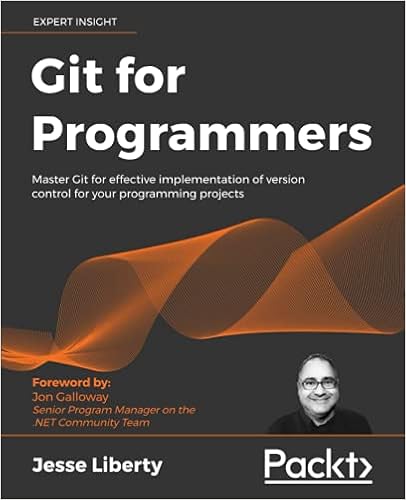Our list of cybersecurity books has been curated to steer your professional growth in 2024. This selection aims to provide comprehensive information security insights and knowledge, ensuring you stay ahead in your career learning journey throughout the year.

Cyber for Builders: The Essential Guide to Building a Cybersecurity Startup
Author: Ross Haleliuk
Cyber for Builders provides an overview of the cybersecurity industry from entrepreneurial lenses, breaks down the role of various industry players, from investors to channel partners and acquirers, and offers insight into the trends shaping the future of security. Moreover, the book is packed with mental models, notes, and advice to help early-stage cybersecurity founders get their ideas off the ground and solve problems young companies face around problem discovery, hiring, building products, and fundraising.

Cybersecurity Career Master Plan: Proven techniques and effective tips to help you advance in your cybersecurity career
Authors: Dr. Gerald Auger, Jaclyn “Jax” Scott, Jonathan Helmus, Kim Nguyen
This book is designed to help you confidently enter the world of cybersecurity, covering everything from gaining the right certification to tips and tools for finding your first job. The book starts by helping you gain a foundational understanding of cybersecurity, covering cyber law, cyber policy, and frameworks. Next, you’ll focus on choosing the career field best suited to you, from security operations to penetration testing and risk analysis. The book also guides you through the different certification options and the pros and cons of a formal college education versus formal certificate courses.

Evading EDR: The Definitive Guide to Defeating Endpoint Detection Systems
Author: Matt Hand
This book demystifies EDR, taking you on a deep dive into how EDRs detect adversary activity. The author uses his years of experience as a red team operator to investigate each of the most common sensor components, discussing their purpose, explaining their implementation, and showing the ways they collect various data points from the Microsoft operating system.

If It’s Smart, It’s Vulnerable
Author: Mikko Hyppönen
This book delivers an eye-opening exploration of the best―and worst―things the internet has given us. From instant connectivity between any two points on the globe to organized ransomware gangs, the net truly has been a mixed blessing. In this book, the author explores the transformative potential of the future of the internet, as well as those things that threaten its continued existence: government surveillance, censorship, organized crime, and more.

Operationalizing Threat Intelligence: A guide to developing and operationalizing cyber threat intelligence programs
Authors: Kyle Wilhoit, Joseph Opacki
You’ll start by finding out what threat intelligence is and where it can be applied. Next, you’ll discover techniques for performing cyber threat intelligence collection and analysis using open source tools. The book also examines commonly used frameworks and policies as well as fundamental operational security concepts. Later, you’ll focus on enriching and analyzing threat intelligence through pivoting and threat hunting. Finally, you’ll examine detailed mechanisms for the production of intelligence.

Practical Cybersecurity Architecture: A guide to creating and implementing robust designs for cybersecurity architects
Authors: Diana Kelley, Ed Moyle
Within this book, you’ll learn the fundamentals of cybersecurity architecture as a practical discipline. Once mastered, these fundamentals are evergreen approaches that can be applied and adapted to new and emerging technologies like artificial intelligence and machine learning. You’ll learn how to address and mitigate risks, design secure solutions in a purposeful and repeatable way, communicate with others about security designs, and bring designs to fruition.

Project Zero Trust: A Story about a Strategy for Aligning Security and the Business
Author: George Finney
This book delivers a hands-on and step-by-step guide to implementing an effective and practical Zero Trust security strategy at your organization. The book is written as an engaging narrative that follows the story of Dylan, a new IT Director at a company that experiences a ransomware attack on his first day. You’ll learn John Kindervags’ 5-step methodology for implementing Zero Trust, the four key Zero Trust design principles, and discover how to align this framework with your company’s operational and commercial requirements.

The Art of Social Engineering: Uncover the secrets behind the human dynamics in cybersecurity
Author: Cesar Bravo, Desilda Toska
You’ll learn the most intriguing psychological principles exploited by attackers, including influence, manipulation, rapport, persuasion, and empathy, and gain insights into how attackers leverage technology to enhance their attacks using fake logins, email impersonation, fake updates, and executing attacks through social media. This book will equip you with the skills to develop your own defensive strategy, including awareness campaigns, phishing campaigns, cybersecurity training, and a variety of tools and techniques.

The DevSecOps Playbook: Deliver Continuous Security at Speed
Author: Sean D. Mack
Wiley CISO and CIO Sean D. Mack delivers an expert analysis of how to keep your business secure, relying on the classic triad of people, process, and technology to examine―in depth―every component of DevSecOps. In the book, you’ll learn why DevSecOps is as much about people and collaboration as it is about technology and how it impacts every part of our cybersecurity systems.

The Language of Deception: Weaponizing Next Generation AI
Author: Justin Hutchens
This book delivers an incisive and penetrating look at how contemporary and future AI can and will be weaponized for malicious and adversarial purposes. You will explore multiple foundational concepts to include the history of social engineering and social robotics, the psychology of deception, considerations of machine sentience and consciousness, and the history of how technology has been weaponized in the past.
InfoSec tools | InfoSec services | InfoSec books | Follow our blog | DISC llc is listed on The vCISO Directory















![The Smartest Person in the Room: The Root Cause and New Solution for Cybersecurity by [Christian Espinosa]](https://m.media-amazon.com/images/I/41KIWmjt6sL.jpg)













